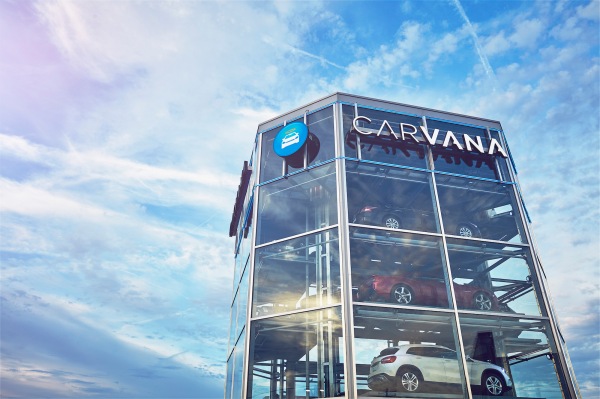Carvana, the online used car marketplace, has agreed to buy Kar Global’s Adesa US auction subsidiary for $2.2 billion in cash, an acquisition aimed at adding another revenue stream as well as a network of physical sites that could help bolster operations.
the acquisition announcementwhich was made alongside a fourth-quarter earnings reportmarks a transition for the pure online business into a more traditional physical car dealer.
Today, Carvana customers can use the company’s mobile or web app to shop, buy and finance their vehicle purchase. Those vehicles can either be picked up at one of its 30 multi-story car vending machines or delivered directly to a customer’s home. Carvana also operates 15 inspection and reconditioning centers where vehicles are evaluated and spruced up before sale. Customers can also sell their vehicles to Carvana.
The additional revenue and physical footprint that Adesa US offers appear to be far too appetizing and too big of an opportunity for Carvana to ignore. And it comes at an opportune time.
Carvana sold 113,016 vehicles and generated $3.75 billion in revenue in the fourth quarter, a 57% year-over-year sales growth. But that YoY figure masks a tapering of growth towards the end of 2021. In the third quarterCarvana sold 111,949 retail units on $3.5 billion of revenue.
Carvana has yet to reach GAAP profitability. Its losses actually widened year-over-year $182 million in the fourth quarter from $154 million in the same period last year. However, its total losses for the year narrowed considerably. The company reported net losses of $287 million in 2021, an improvement from $462 million the previous year.
Adesa has 56 physical sites, which Carvana will also be able to use to inspect and recondition the vehicles its sells online. Carvana will continue to operate Adesa US’s physical auctions while simultaneously developing the sites to include Carvana’s standard retail inspection, reconditioning and logistics capabilities, the company said in its letter to shareholders.
Carvana said Adesa US reconditioning operations could help expand its production capacity from 2 million units to over 3 million units annually.
The network of 56 sites coupled with Carvana’s existing infrastructure will put 78% of the US population within 100 miles of inspection and reconditioning centers.
Carvana also sees an opportunity to increase its auction capabilities and kickstart or deepen its “relationships with many large and important players in the automotive industry,” the company said in its shareholder letter.
Then there’s the revenue possibilities, an important factor for a company that saw sky-high used car sales spurred by the pandemic come back down to earth. Adesa US’s business facilitated more than one million transactions through those sites, bringing in more than $800 million in revenue in 2021.
Of course, this potential reward comes with the risk that Carvana will see its operational expenses grow past its profit potential.
Carvana is using a portion of the $3,275 billion in financing it received from JPMorgan Chase Bank NA and Citi to fund the purchase. It will use the remaining $1 billion for improvements across Adesa US’s 56 sites through a committed debt financing.
Adesa US’s wholesale auction business will continue to operate under its existing brand name. John Hammer, president of Adesa US, along with other senior-level executives, will move over to Carvana once the deal closes.
